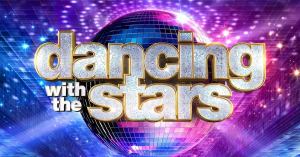Catherine Zeta-Jones supports her husband, Michael Douglas, as well as the Me Too movement. The 48-year-old actress spoke at the Television Critics Association on Sunday about Douglas’ decision to release a preemptive statement denying sexual harassment claims from a former employee.
“My reaction was that as two people who have been in this business — him longer than me — was that we support ‘Me Too’ and the movement more than anybody, anybody — me as a woman, him as a man,” Jones, who wore black to the Golden Globes, said. “And there was no other way than to be preemptive in a story that had to be watched. He did a statement, he did it. I think it’s very clear the way that he stands. I cannot elaborate on something that’s so very personal to him.”
Videos by PopCulture.com
Jones highlighted the significance of women coming forward, saying, “We’re seeing changes that have taken many years to even be talked about. It’s an amazing time for women, and I really want women to remember how strong we are in numbers. This is going to die down. This is not going to be at the forefront of everyone’s mind forever and ever and we’re going to have to be kind to each other. We can’t ask everyone else to be kind to us unless we’re kind to each other.”
“I have a daughter and I instill [empowerment] in her every single day,” Jones said.
Last week, Douglas spoke with Deadline, saying he’d been contacted by multiple outlets regarding claims that Douglas had sexually harassed a former employee.
The Wall Street and Ant-Man actor said he made the decision to come forward after he was contacted by The Hollywood Reporter concerning a sexual harassment allegation from a former employee who worked for him 32 years ago. Douglas said he was blindsided by the story and wished to get out in front of the claim.
“She claims that, one, I used colorful language in front of her, not at her, but that I used colorful language,” Douglas said. “Two, she claims that in conversations I had in front of her, on the phone, that I spoke raunchily, or dirtily with friends of mine, in private conversations. I fired her eventually, for the work she was doing, but three, she claims that I blackballed her from the industry and stopped her from getting another job. And then, four, she claims that I masturbated in front of her.”
Douglas said his “head was reeling” when he learned of the allegations, which have yet to be published. He acknowledged that he very well may have spoken inappropriately in front of the woman but said the masturbation allegation was not true.
“I talked to the reporter and said, ‘listen, as far as using colorful language in front her, I apologize,” Douglas said. “‘None of it was directed at her; she didn’t say it was. It was my office and that was the tone that I set and as far as conversations with friends.’ … As to colorful language, she may have overheard private conversations, and if she was offended, she could have excused herself.”
He continued, “As far as blackballing her, that was completely untrue. She was a lady who was involved in development at my company, and we just didn’t have a good development record in the time she was there, so I just moved on. I never blackballed her. If people from the industry called me to ask about her, I would have been honest, but I never blackballed her.”
And to the masturbation allegation, Douglas said she characterized it as “a complete lie” and “fabrication” with “no truth to it whatsoever.”
Douglas hypothesized that the woman could be disgruntled from her firing all those years ago or she could be looking to receive a book deal. He also says he felt that THR was going to hastily publish the accusation without proper corroboration due to a competing outlet catching wind of the story.
“I support the #MeToo movement with all my heart,” Douglas said. “I have always supported women, along the way. This is the kind of step that can set that movement back. Being accused, without a chance [to defend yourself] in court. To not even really have the information in front of you, to be able to argue or defend yourself. There is no due process, no chance of seeing evidence in front of me from my accuser. It worries me.”








